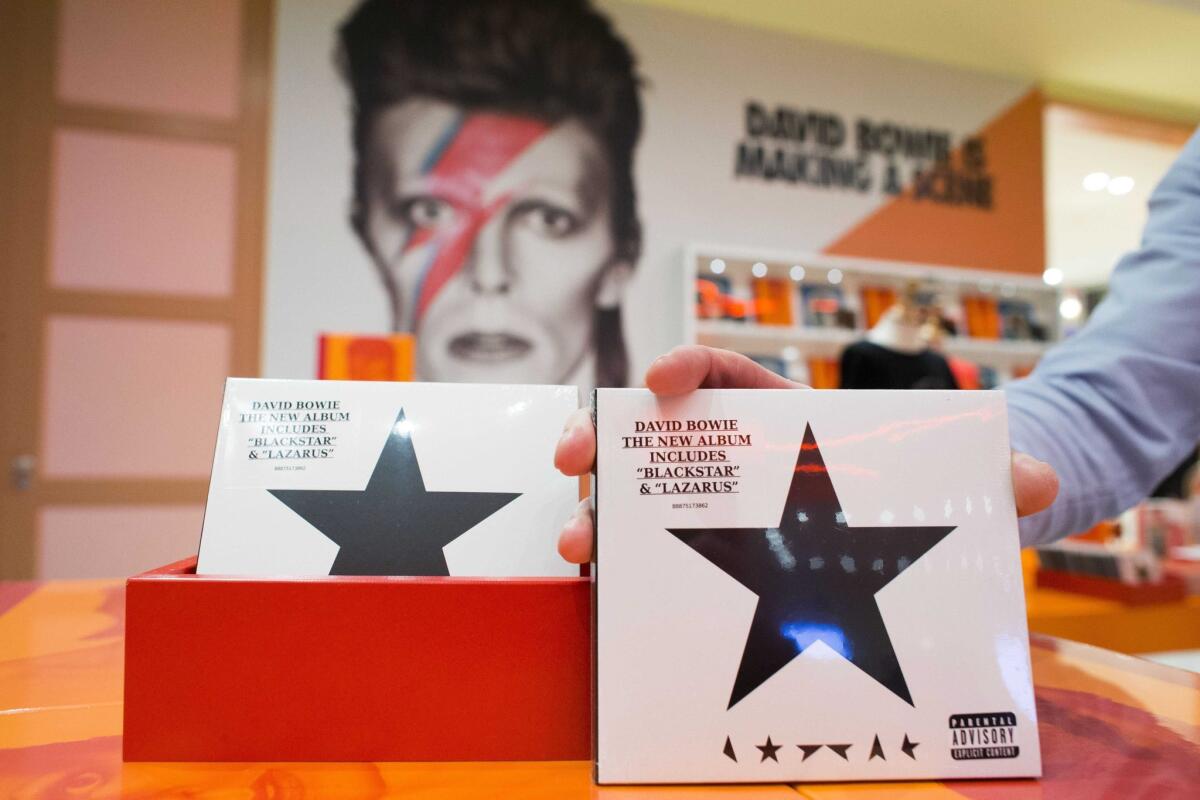Underrated/Overrated: David Bowie’s ‘Blackstar,’ and Season 2 of ‘Transparent’

David Bowie ‘Blackstar’ was released days before his death.
There’s a lot of pop culture to sort through week after week. Times staff writer Chris Barton offers his take on what’s up and what’s down in music, movies, television and just about anything else out there that’s worth considering.
Jan. 17, 2016
UNDERRATED
David Bowie’s final statement: When David Bowie died late Jan. 10 after an 18-month battle with cancer, pop culture shook with the unexpected loss of a one-of-a-kind artistic visionary. But in hindsight, clues to Bowie’s condition were left in behind in “Blackstar,” a raw, compelling and ultimately hopeful album that drew raw poetry out of illness. Released days before his death, the haunting video for the single “Lazarus” faces the end with a mix of raw honesty and unyielding beauty.
The return of “Luther”: We may never get to see Idris Elba as the James Bond the world needs (particularly if you ask the Internet), but we at least have him portraying Det. John Luther in this dark BBC series. Its two-part fourth season might have been lost in the shuffle because it was released around the holidays, but it’s worth seeking out as Elba gruffly pursues a particularly horrifying serial killer in a London that’s surprisingly well stocked with them. Still, it’s a pleasure to watch Luther work.
OVERRATED
Season 2 of “Transparent”: As revered as any recent show on TV (or its Internet equivalent), the first season of Amazon’s “Transparent” soared atop the graceful and honest humanity of its characters. So why does its second installment feel like such a chore? Reveling in its damaged family’s varying degrees of self-absorption or misery while getting sidetracked in beautiful but forced shifts to a Weimar-era cabaret storyline, the series feels more interested in exploring new directions than a consistent story.
“Sleeping With Other People” (2015): Benefiting from an alt-comedy cast that includes “Community’s” Alison Brie and Jason Sudeikis from “SNL,” this attempt at a subversive romantic comedy is striking for its oddly regressive formula. Billed as a romance between two people addicted to sex — hint, they’re not — the movie struggles to find purpose as Sudeikis’ character maintains an imbalanced hold over the relationship, and every attempt for “Harry Met Sally” charm gets increasingly exhausting.
Twitter: @chrisbarton
More to Read
The biggest entertainment stories
Get our big stories about Hollywood, film, television, music, arts, culture and more right in your inbox as soon as they publish.
You may occasionally receive promotional content from the Los Angeles Times.











